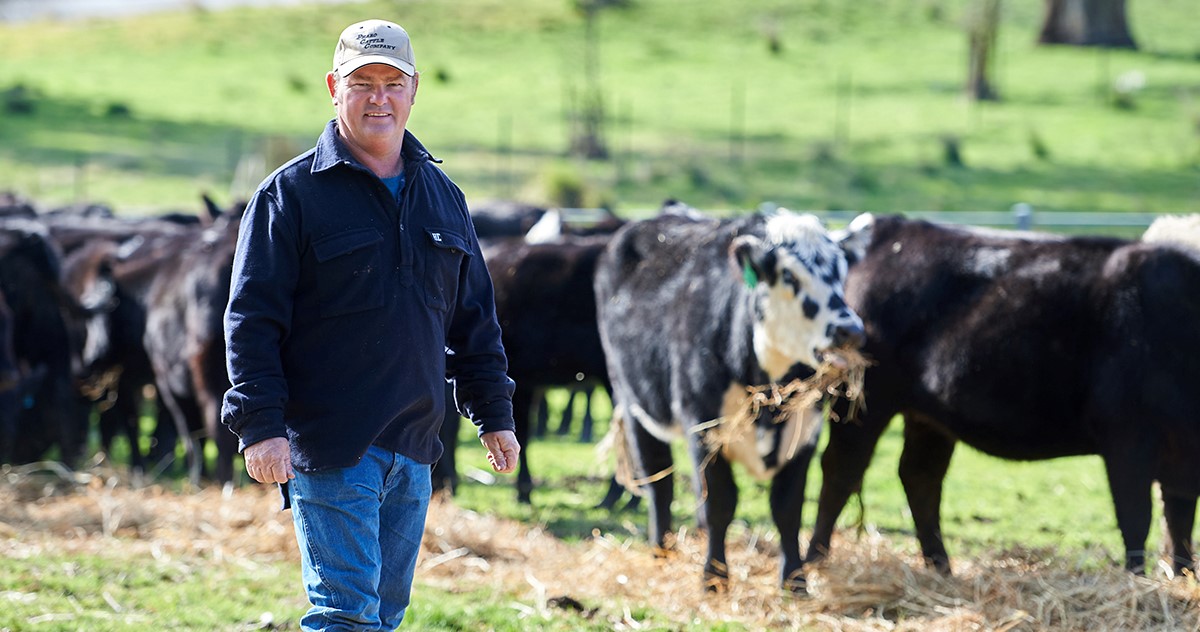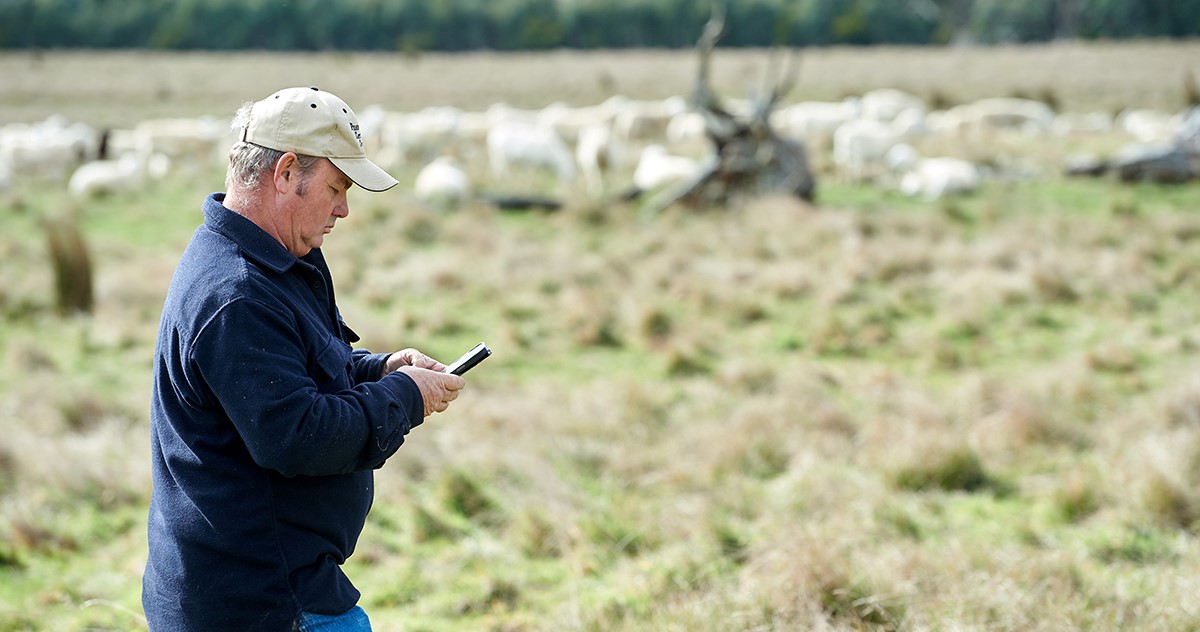Digital consignments a big win for Yass producer

Key Points
- Integrity systems no longer regarded as ‘red tape’ by farmers
- eNVDs make on-farm operations faster, easier and more streamlined
- The eNVD mobile app makes life easier for producers
- Integrity systems make animal welfare a priority
Matt Doyle runs a large sheep breeding operation and cattle trading business on his 3,000-acre property outside of Yass on the NSW Southern Tablelands.
He’s been in the red meat game for 17 years and said industry’s understanding of the role integrity system programs play in protecting market access has grown significantly over that time.
“Integrity systems are proof that we as an industry are protecting ourselves by knowing where our animals have come from and where they go. They enable us to assure our clients and our customers that what we're supplying, is safe,” he said.
Matt said initially there was resistance from some producers to adopting integrity systems due to concerns it was just more ‘red tape’, but thankfully that’s no longer the case.
“Integrity systems have now been accepted by the industry. They are doing what they are designed to do – helping the sector to adequately prepare for a disease outbreak, be accountable and help market our red meat globally,” he said.
Matt said the safeguards provided to the Australian red meat sector by integrity systems were clear to everyone when the threat of foot and mouth disease was on Australia’s doorstep after an outbreak in Bali in 2022.
“Having on-farm biosecurity plans through integrity systems protects the industry so if there’s a disease outbreak, it can be managed at a local level before it flows through the supply chain and becomes a big problem – potentially impacting valuable international markets,” he said.
Integrity systems making things easy on-farm
Matt says day-in and day-out, integrity systems are an integral part of running on-farm operations efficiently and profitably.
He’s especially complimentary about the convenience of eNVDs which he uses for every consignment of his stock.
“In 2022, we converted to using eNVD. Now instead of using a form in the book it means when we fill out the form online, it's automatically updated and uploaded to the database and on my PC before the cattle leave the farm,” he said.
Matt is also a big fan of using electronic identification devices (eIDs). These contain a radio frequency identification device (RFID) which individually identifies livestock with a unique number. Being electronic, an eID can be scanned meaning the number of animals coming onto a farm can be accurately recorded in on-farm software and the NLIS database. A RFID chip can be found inside every NLIS eID.
“We're currently setting up two test monitors to use NLIS eID devices to monitor our weight gains. We’ll use that information to draught animals out of our herd that aren't performing to give them preferential feeding to help increase our turnover,” he said.
There are also savings for producers who adopt and implement integrity systems and LPA accreditation, according to Matt.
“Thanks to these measures, we no longer have to use an identification tag on our animals at a cost of $5 per head. The cattle we're buying that have the NLIS button in their ear are saving us putting in another tag,” Matt said.
Happy animals, producers and customers go hand-in-hand
Matt says the Australian integrity systems play an important role in ensuring producers prioritise animal welfare.
He says part of gaining LPA accreditation for example, is having a sound knowledge of animal welfare and animal welfare practices.
“I think this is really good for us as an industry to show all our customers that we're doing the right thing so that I can be assured that they're getting a good product from an animal that's had a really good life,” Matt said.

He believes if animal welfare is not front of mind, cattle and sheep don’t grow at their best rate and that’s not good for business.
“As a livestock producer, animal welfare is paramount to our business. If I don't look after my animals and ensure they are happy and healthy, they're not going to perform, they're not going to put on weight which is the key profit driver in our business,” he said.
Matt says there’s an expectation by domestic and global consumers that animal welfare is a key focus of the Aussie red meat industry.
“Farming's a tough enough game as it is without losing customers. So, we need to make sure we're doing the right thing by all our customers so that they keep coming back and buying our products and so that we can keep making good money as an industry,” Matt said.
Integrity systems protecting farming futures
Matt believes the integrity system programs have been a game changer for the red meat industry and are of paramount importance to all producers.
“If producers get the integrity system wrong, they’re letting down the rest of the industry and they're letting down the farmers that are doing the right thing, risking Australia’s name as a clean, green producer globally by not adhering to some simple guidelines,” he said.
Matt says the integrity system in place on his Yass property has helped secure its farming future for another couple of generations.
“It's our responsibility as producers to make sure our livestock are fit to load, our paperwork is accurate and correct and that we're being honest with our paperwork and the information we're giving to our customers,” Matt said.
Integrity systems for every producer
Integrity Systems Company (ISC) manages and delivers the red meat assurance program and provides the National Livestock Identification System (NLIS) database for the Australian red meat industry, specifically:
- The National Livestock Identification System (NLIS) – ISC accredits the tags or devices which are used to identify livestock and provide the NLIS database that records livestock movements over its lifetime.
- The Livestock Production Assurance Program or LPA which is the on-farm assurance program covering food safety, animal welfare and biosecurity requirements. Livestock producers must be LPA accredited to access and use the LPA National Vendor Declarations (NVDs) as well as electronic NVDs (eNVDs). LPA accredited producers provide assurance that their on-farm practices meet the Australian Animal Welfare Standards and Guidelines.
- NVDs and eNVDs document the treatment and food safety of every animal in the red meat value chain. There is a web-based platform for eNVDs as well as an easy-to-use eNVD mobile app which overcomes the connectivity issues often faced by producers, by using QR codes to transfer consignment details from producer to transporter, saleyard, feedlot and to the processor.